If you’re looking for a natural way to boost your immune system and support heart health, you might want to consider adding garlic to your daily routine. Garlic has been used for centuries for its medicinal properties, and research has shown that it can have a number of health benefits.
Garlic contains a compound called allicin, which is responsible for many of its health benefits. Allicin has been shown to have antibacterial, antiviral, and antifungal properties, which can help to support your immune system. Garlic also contains other compounds that can help to lower cholesterol levels, reduce inflammation, and improve blood flow.
Key Takeaways:
- Garlic contains a compound called allicin that has antibacterial, antiviral, and antifungal properties.
- Garlic can help to support your immune system and reduce inflammation.
- Garlic can also help to lower cholesterol levels and improve blood flow.
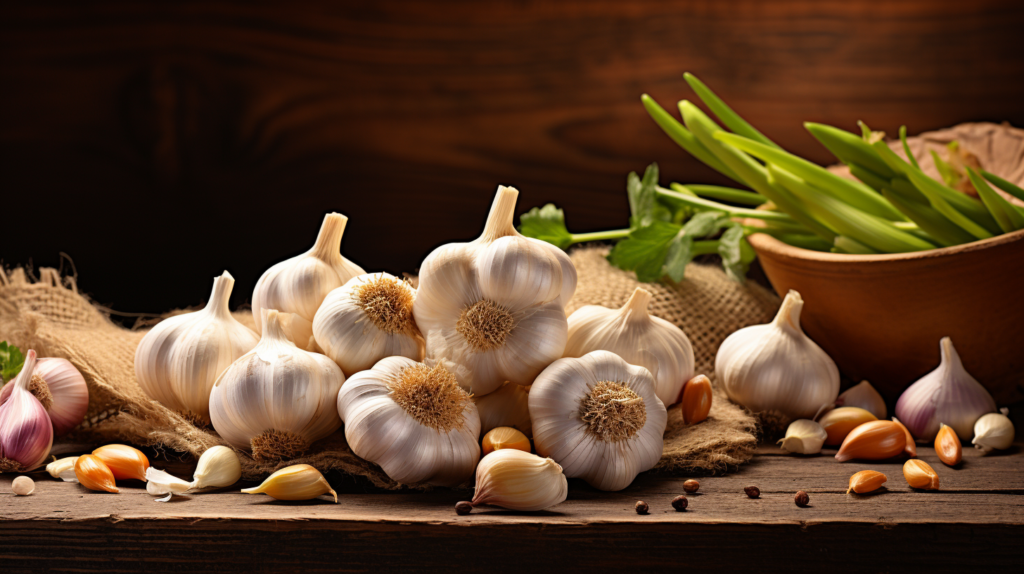
The Immune-Boosting Power of Garlic
Garlic is a powerful natural ingredient that has been used for centuries to support overall health. Among its many health benefits, garlic is known for its potent immune-boosting properties.
Garlic contains compounds that have been shown to enhance the function of immune cells, helping to fight off infection and disease. These compounds also have anti-viral and anti-bacterial properties, which can help to protect against illness.
Specifically, garlic contains a compound called allicin, which has been shown to boost the production of white blood cells and other immune cells. Allicin also has antioxidant properties, which can help to reduce inflammation and oxidative stress in the body.
Garlic and the Common Cold
Garlic has been shown to be effective in reducing the duration and severity of the common cold. In one study, participants who took a garlic supplement had fewer colds and recovered more quickly than those who did not take the supplement.
Similarly, another study found that a high dose of aged garlic extract reduced the incidence of the common cold by 58% compared to a placebo group.
While more research is needed to fully understand the immune-boosting properties of garlic, these studies provide promising evidence for the potential benefits of incorporating garlic into your diet.
Tip: To get the most out of garlic’s immune-boosting properties, it’s best to consume it raw or lightly cooked. Heating garlic can break down some of the beneficial compounds, so try adding minced garlic to dressings or sauces, or simply munch on a garlic clove.
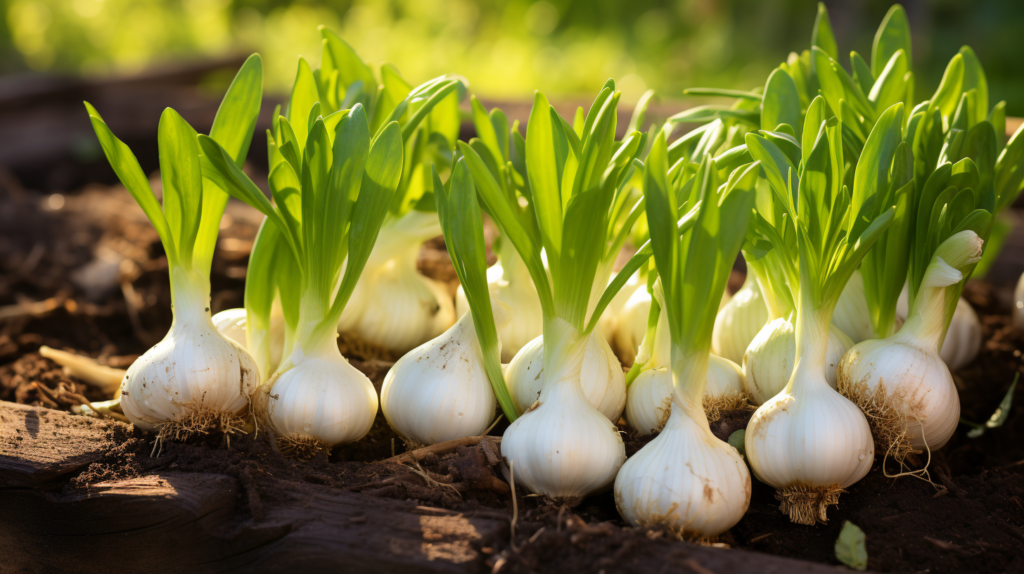
Garlic’s Role in Heart Health
Garlic has been recognized for centuries as a natural remedy for various ailments, including heart disease. Garlic contains compounds that have been shown to benefit heart health in several ways.
First, garlic helps to lower blood pressure, which is a significant risk factor for heart disease. One study found that taking garlic supplements reduced systolic blood pressure by an average of 9.1 mmHg, which is comparable to the effects of some blood pressure medications.
| Blood Pressure | Garlic Consumption |
|---|---|
| Systolic Blood Pressure | Reduced by an average of 9.1 mmHg |
| Diastolic Blood Pressure | Reduced by an average of 5 mmHg |
Garlic also helps to reduce cholesterol levels, specifically LDL cholesterol (the “bad” cholesterol), which is another risk factor for heart disease. A review of 39 studies found that consuming garlic was associated with a significant reduction in total and LDL cholesterol levels.
Additionally, garlic has anti-inflammatory properties, which can help to protect the heart. Chronic inflammation has been linked to the development of heart disease, and garlic’s ability to reduce inflammation may be one reason why it is beneficial for heart health.
To reap the benefits of garlic for heart health, it is recommended to consume 2-3 cloves of garlic per day. If you do not like the taste of raw garlic, you can try incorporating it into your diet by adding it to soups, stews, or stir-fries. Alternatively, you can take garlic supplements, which are available in various forms, including capsules, tablets, and powders.
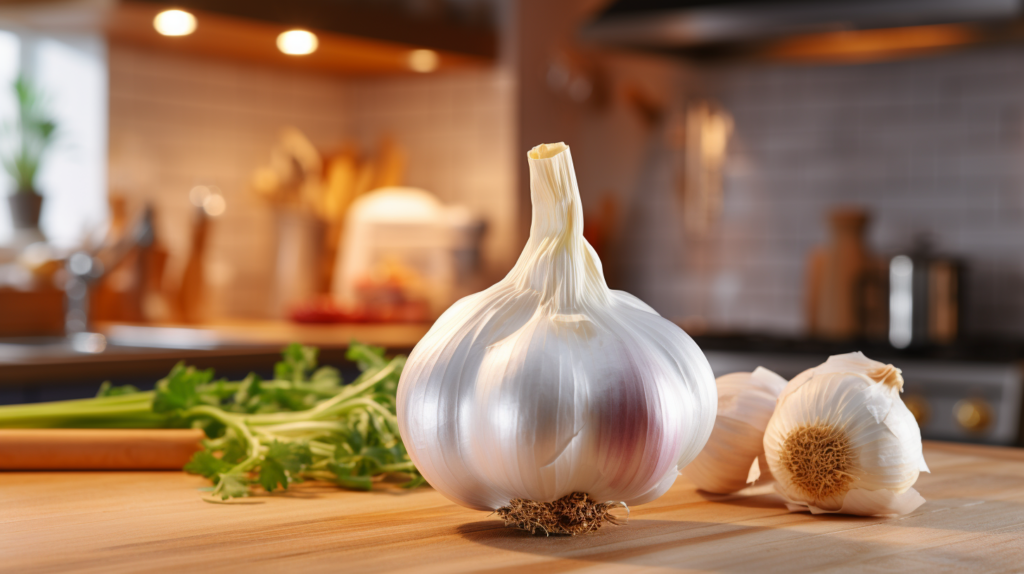
Garlic and Blood Pressure
High blood pressure is a common health problem that affects millions of people in the United States. If left uncontrolled, it can lead to serious health complications such as stroke, heart attack, and kidney disease. However, consuming garlic may help lower blood pressure naturally, reducing the risk of these health issues.
Garlic contains a compound called allicin, which has been shown to have a vasodilatory effect. This means that it helps to widen the blood vessels, allowing blood to flow more freely throughout the body. In turn, this can lead to a reduction in blood pressure.
| Study | Results |
|---|---|
| Australian study | Subjects who took garlic supplements had a significant reduction in systolic blood pressure compared to those who took a placebo. |
| Iranian study | Subjects who consumed raw garlic had a significant reduction in both systolic and diastolic blood pressure compared to those who did not. |
While these studies are promising, more research is needed to fully understand the effects of garlic on blood pressure. Additionally, it’s important to note that garlic should not be used as a replacement for prescribed blood pressure medication without consulting with a healthcare professional.
If you’re interested in incorporating garlic into your diet to potentially help with blood pressure control, try adding it to your meals as a flavor enhancer. Garlic can be easily added to soups, stews, roasted vegetables, and even salad dressings for an extra boost of flavor and potential health benefits.
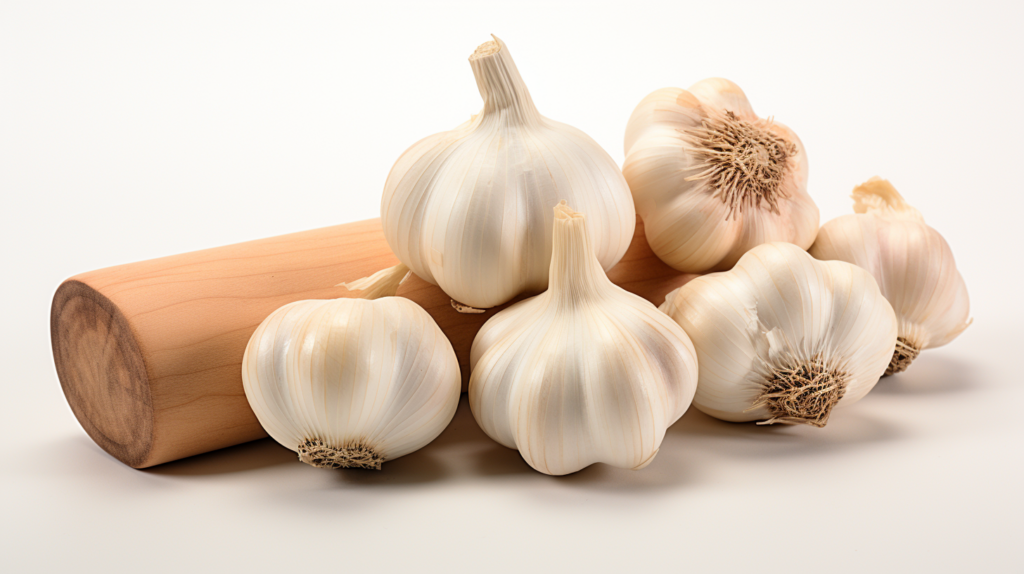
Garlic and Cholesterol Levels
Garlic is renowned for its cholesterol-lowering properties, making it an excellent addition to your diet if you’re concerned about your cholesterol levels. Studies have shown that garlic can lower total cholesterol levels by as much as 10-15% in individuals with high cholesterol.
Garlic works to reduce cholesterol by preventing the liver from producing excess cholesterol and helping the body eliminate it. The sulfur compounds found in garlic are responsible for its cholesterol-lowering effects, as they inhibit an enzyme involved in cholesterol synthesis.
| Cholesterol Type | Garlic Effect |
|---|---|
| Total Cholesterol | Decreases |
| LDL (Bad) Cholesterol | Decreases |
| HDL (Good) Cholesterol | No significant effect |
It’s important to note that while garlic can lower cholesterol levels, it should not be used as a substitute for medication prescribed by your doctor. However, incorporating garlic into your daily diet can be a natural and effective way to support your heart health.
“Garlic has been shown to reduce total cholesterol levels by 10-15% in individuals with high cholesterol.”
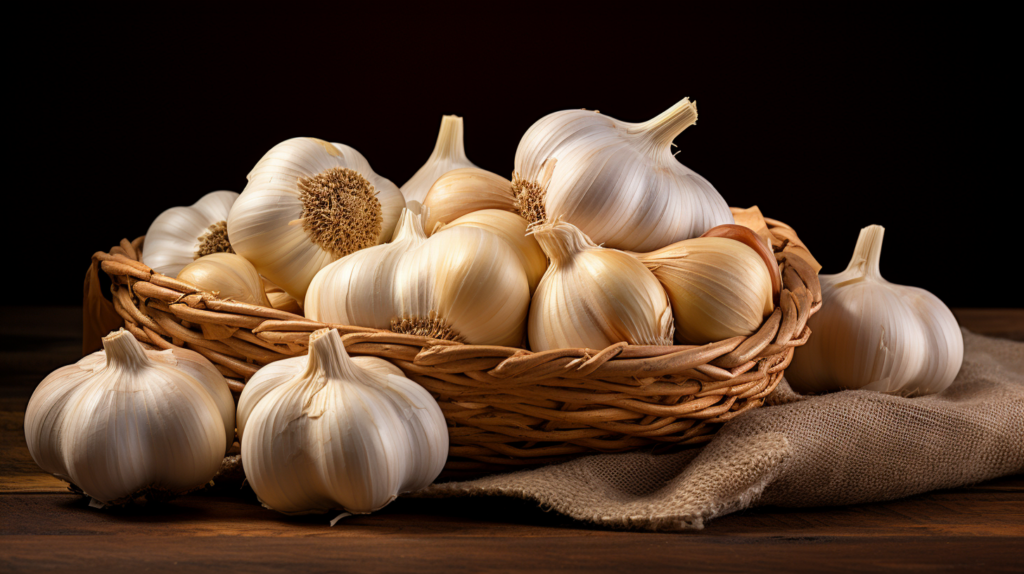
Garlic as an Anti-Inflammatory Agent
Garlic has been shown to have anti-inflammatory properties, which can help protect against chronic diseases such as arthritis and heart disease. The sulfur compounds in garlic, such as allicin, are believed to be responsible for its anti-inflammatory effects.
A study published in the journal Pharmacognosy Reviews found that garlic extract was effective in reducing inflammation in rats with arthritis. Another study published in the journal Life Sciences found that allicin was able to reduce inflammation in human blood cells.
| Anti-Inflammatory Properties of Garlic | Source |
|---|---|
| Reduces inflammation in rats with arthritis | Pharmacognosy Reviews |
| Reduces inflammation in human blood cells | Life Sciences |
In addition to its anti-inflammatory properties, garlic has also been shown to have antioxidant effects, which can help protect against oxidative stress and reduce inflammation in the body.
The Bottom Line
Garlic’s anti-inflammatory properties make it a potential ally in reducing the risk of chronic diseases such as arthritis and heart disease.
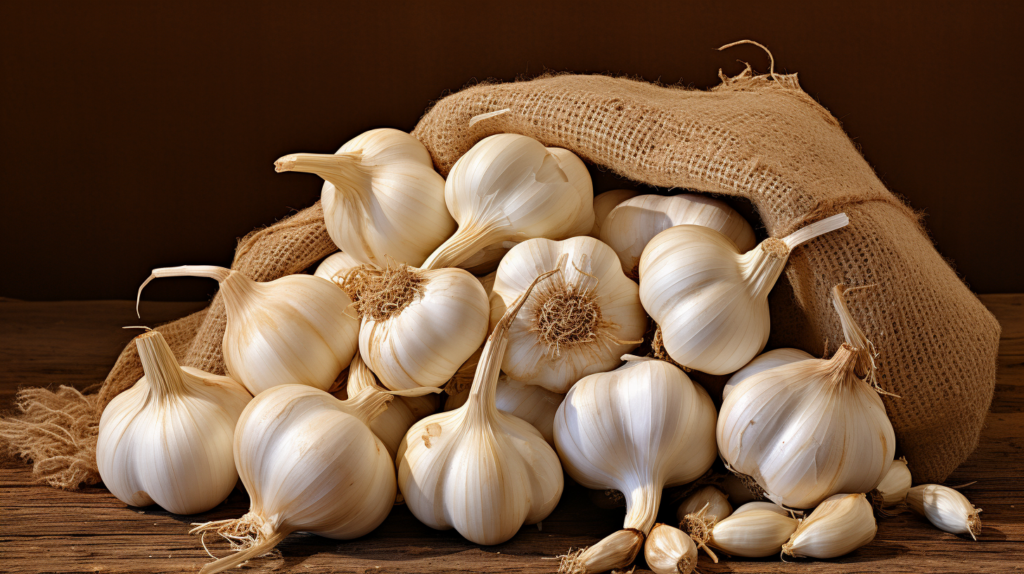
Garlic and Cancer Prevention
Garlic has been shown to have cancer-preventive properties, making it a valuable addition to your diet. The sulfur compounds found in garlic have been found to inhibit the growth of cancer cells and reduce the risk of certain types of cancer.
Studies have shown that individuals who regularly consume garlic have a reduced risk of developing cancer of the stomach, colon, esophagus, pancreas, and breast. For example, a study published in the journal Cancer Prevention Research found that women who consumed high amounts of garlic had a 50% reduced risk of developing colon cancer compared to those who consumed low amounts.
Garlic’s cancer-fighting properties are believed to be due to its ability to reduce inflammation, which is linked to the development of cancer. The sulfur compounds found in garlic are also thought to play a role in activating enzymes that help to detoxify carcinogens and prevent the formation of cancer cells.
While more research is needed to fully understand the relationship between garlic and cancer prevention, incorporating garlic into your diet is an easy and delicious way to potentially reduce your risk of developing cancer.
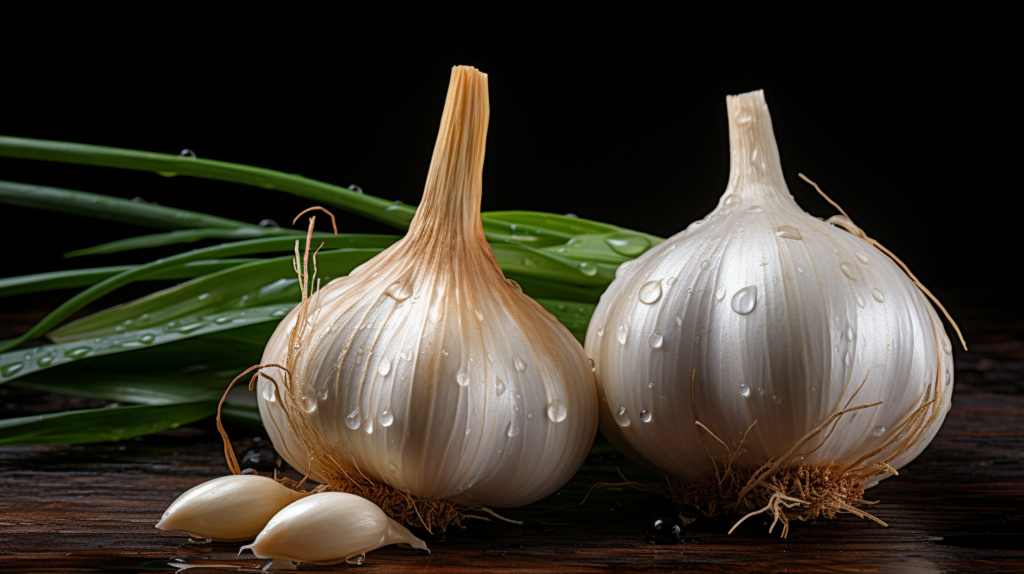
Garlic and Weight Loss
If you are looking to shed some extra pounds, garlic can be a great addition to your diet. Garlic contains compounds that may aid in weight loss by increasing metabolism, reducing inflammation, and suppressing appetite.
Studies have shown that garlic can help boost metabolism by increasing thermogenesis, which is the process by which your body burns calories to produce heat. Garlic also contains antioxidants that may help reduce inflammation in the body, which has been linked to weight gain and obesity.
Furthermore, garlic may help suppress appetite by increasing levels of satiety hormones in the body, such as leptin, which signals the brain to stop eating when you are full.
To incorporate garlic into your weight loss regimen, try adding chopped or minced garlic to your meals, such as in stir-fries, salads, and soups. You can also take garlic supplements in the form of capsules or tablets, but be sure to speak with your healthcare provider before adding any new supplements to your regimen.
Garlic and Weight Loss: A Word of Caution
While garlic can be a helpful aid in weight loss, it should not be relied on as the sole solution to weight management. A healthy diet and regular exercise are essential for achieving and maintaining a healthy weight. Additionally, excessive consumption of garlic can cause digestive issues such as bloating, gas, and diarrhea.
It is also important to note that garlic may interact with certain medications, including blood thinners and some antibiotics. As always, speak with your healthcare provider before making any significant changes to your diet or supplement regimen.
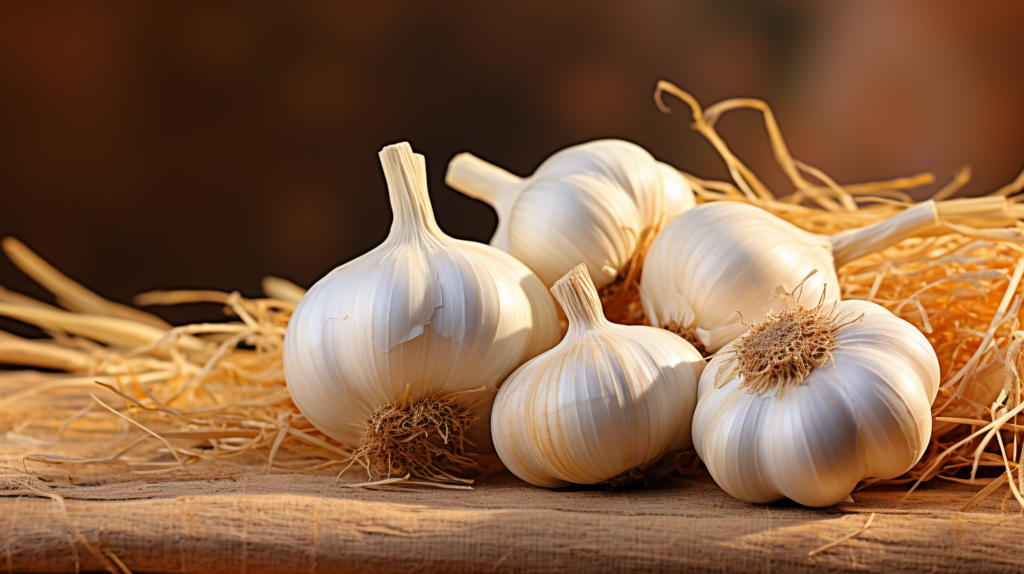
Garlic for Skin Health
Did you know that incorporating garlic into your diet can also benefit your skin health? Garlic contains antioxidants that protect skin cells from damage caused by free radicals. Free radicals are unstable molecules that are produced in the body and can damage skin cells, leading to premature aging and wrinkles. By consuming garlic, you are helping your body fight against these harmful molecules and keeping your skin looking youthful.
Garlic also has antibacterial and antifungal properties that can help prevent skin infections and acne. These properties are believed to be due to a compound called allicin, which is released when garlic is crushed or chopped. Allicin has been shown to have antimicrobial effects against a variety of bacteria and fungi, making it a natural alternative to harsh chemicals found in some skincare products.
Additionally, garlic has anti-inflammatory properties that can help reduce redness and swelling associated with skin conditions like psoriasis and eczema. Inflammation is a natural response of the immune system to injury or infection, but chronic inflammation can damage skin cells and exacerbate skin conditions. Garlic has been shown to inhibit pro-inflammatory molecules, reducing inflammation and improving skin health.
To reap the skin benefits of garlic, try incorporating it into your diet by adding it to your favorite dishes or trying garlic supplements. You can also make a DIY garlic face mask by crushing a few cloves of garlic and mixing with honey or yogurt, applying to your face for 10-15 minutes and rinsing off with warm water.

Incorporating Garlic into Your Daily Routine
Garlic is a versatile ingredient that can be used in a variety of dishes. Here are some simple ways to add garlic to your daily routine:
Cooking with Garlic
Garlic can be added to almost any savory dish. You can chop it up and add it to scrambled eggs, soups, stews, roasted vegetables, and more. You can also sauté it with olive oil and add it to pasta dishes, rice dishes, and stir-fries.
Another great way to use garlic is to roast it. Simply slice off the top of a head of garlic, drizzle it with olive oil, wrap it in foil, and bake it in the oven for about 30 minutes. Roasted garlic has a milder flavor than raw garlic and is delicious spread on bread or added to mashed potatoes.
Garlic Supplements
If you don’t like the taste of garlic or want to make sure you’re getting enough of its health benefits, you can take garlic supplements. These are available in tablet, capsule, and liquid form. Make sure to follow the recommended dosage on the label.
Garlic Tea
Garlic tea is another way to incorporate garlic into your daily routine. To make garlic tea, crush a clove of garlic and let it steep in hot water for a few minutes. You can add honey, lemon, or ginger to taste.
Garlic Pickles
Garlic pickles are a delicious and healthy snack. Simply add garlic cloves, dill, and other spices to a jar of pickles and let them sit in the refrigerator for a few days before enjoying.
When incorporating garlic into your diet, it’s important to note that cooking garlic can reduce some of its health benefits. To get the most benefit from garlic, try to eat it raw or lightly cooked.
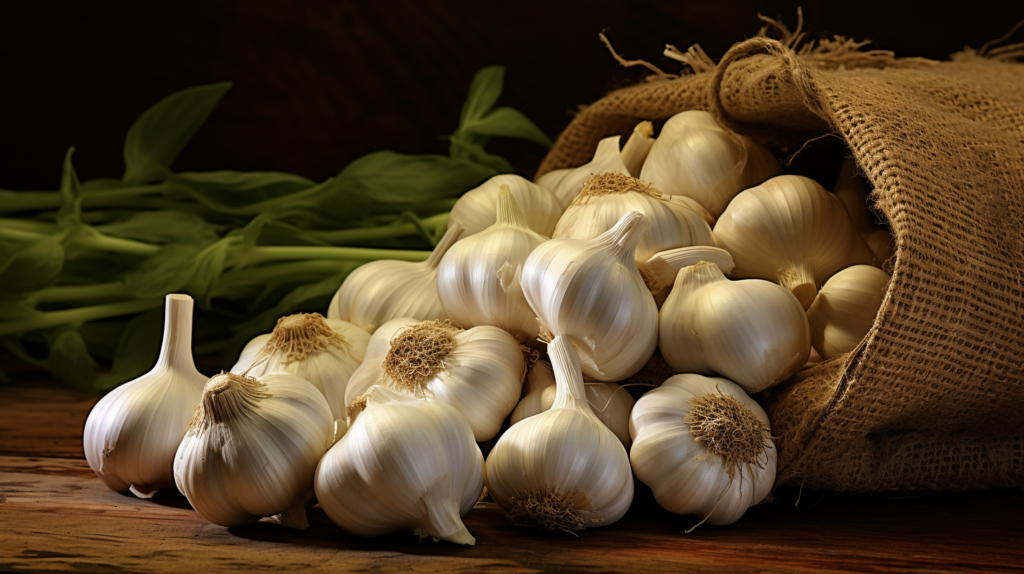
Conclusion
Now that you know the numerous health benefits of garlic, it’s time to start incorporating it into your daily routine. Adding garlic to your meals is an easy way to enjoy its immune-boosting properties. You can mince garlic and add it to your salad dressings, sauces, and soups. Garlic can also be roasted and spread on bread or used as a seasoning for meats and vegetables.
To get the most out of garlic’s heart-healthy benefits, it’s recommended to consume it raw or lightly cooked. You can crush and chop garlic and let it sit for a few minutes before cooking to activate its health-promoting compounds.
If you’re concerned about bad breath or body odor, consider taking garlic supplements, which are widely available in capsule form. However, it’s always best to consult with a healthcare professional before taking any supplements.
Remember, while garlic has numerous health benefits, it’s not a magical cure-all. Eating a balanced and nutritious diet, staying physically active, and getting enough rest are all key to maintaining good health. By incorporating garlic into your daily routine, you’re taking a step towards a healthier and happier life.
FAQ
Q: How does garlic support immunity and heart health?
A: Garlic naturally supports immunity by enhancing the activity of immune cells and promoting the production of antibodies. It also helps lower the risk of heart disease by reducing cholesterol levels and improving blood pressure.
Q: What are the immune-boosting powers of garlic?
A: Garlic is known for its immune-boosting properties due to its antimicrobial, antiviral, and antioxidant effects. It can help protect against colds, flu, and other respiratory infections.
Q: How does garlic benefit heart health?
A: Garlic helps maintain heart health by reducing levels of total cholesterol, LDL cholesterol, and triglycerides. It also improves blood flow, reduces blood pressure, and prevents the formation of blood clots.
Q: Can garlic help lower blood pressure?
A: Yes, garlic has been shown to effectively lower blood pressure by relaxing blood vessels and improving blood flow. Regular consumption of garlic can help manage hypertension.
Q: Does garlic have any effect on cholesterol levels?
A: Garlic can help lower cholesterol levels, particularly LDL cholesterol, which is known as the “bad” cholesterol. It can also increase levels of HDL cholesterol, which is the “good” cholesterol.
Q: Is garlic beneficial as an anti-inflammatory agent?
A: Yes, garlic possesses anti-inflammatory properties that can help reduce inflammation in the body. This can be beneficial for conditions such as arthritis and inflammatory bowel disease.
Q: Can garlic help prevent cancer?
A: Garlic contains compounds that have been shown to have anticancer properties. Regular consumption of garlic may help reduce the risk of certain types of cancer, including stomach and colorectal cancer.
Q: Can garlic aid in weight loss?
A: While garlic alone cannot cause weight loss, it may support weight loss efforts. Garlic can help boost metabolism, reduce appetite, and promote fat burn, making it a useful addition to a balanced diet and exercise routine.
Q: How does garlic benefit skin health?
A: Garlic has antimicrobial and anti-inflammatory properties that can help improve various skin conditions, including acne and fungal infections. It can also promote collagen production, which is essential for maintaining youthful and healthy skin.
Q: How can I incorporate garlic into my daily routine?
A: There are numerous ways to incorporate garlic into your daily routine. You can add it to your cooking, make garlic-infused oil or vinegar, or consume it in supplement form. It is recommended to consult with a healthcare professional for personalized advice.














